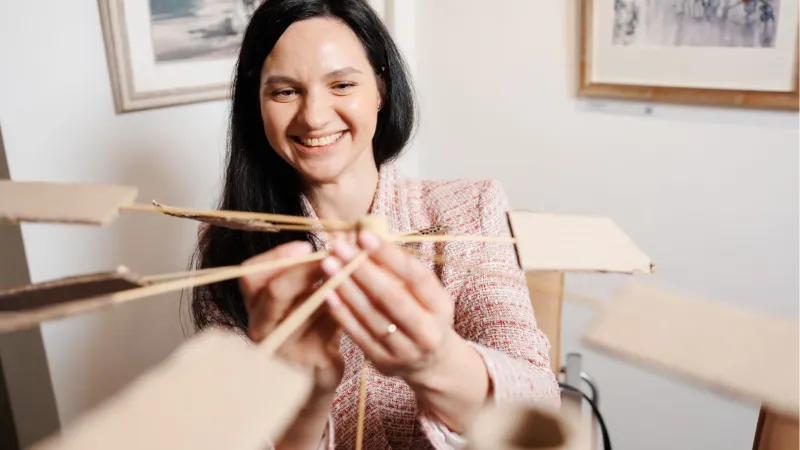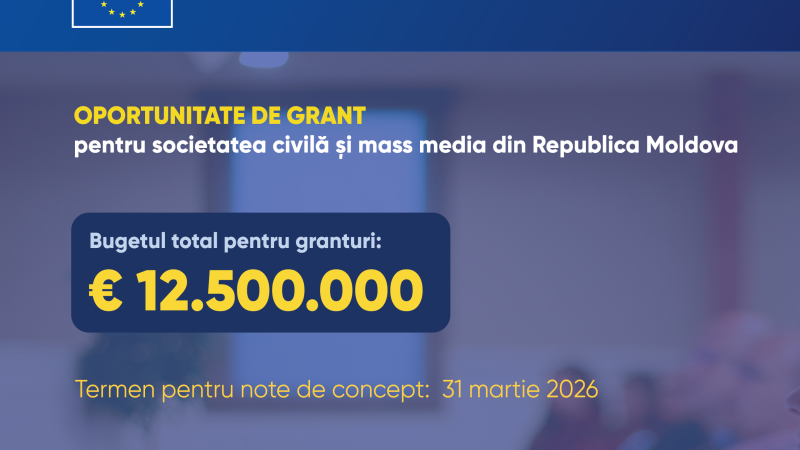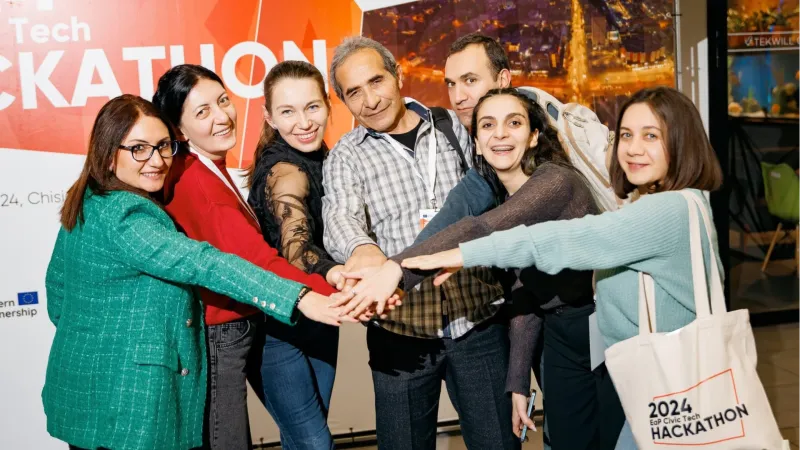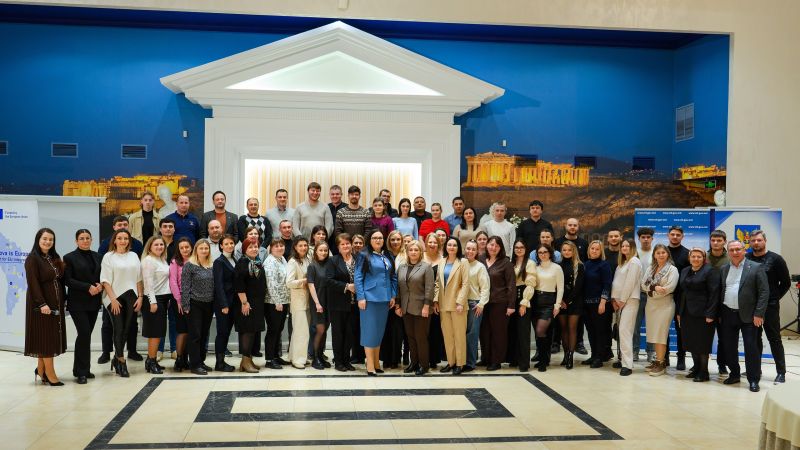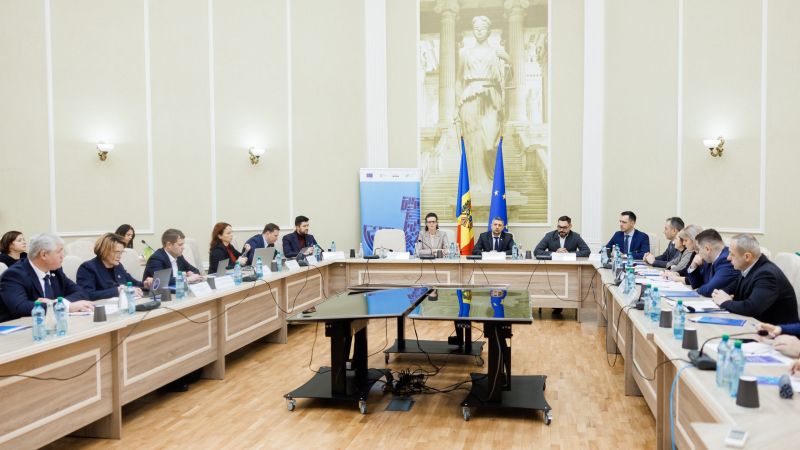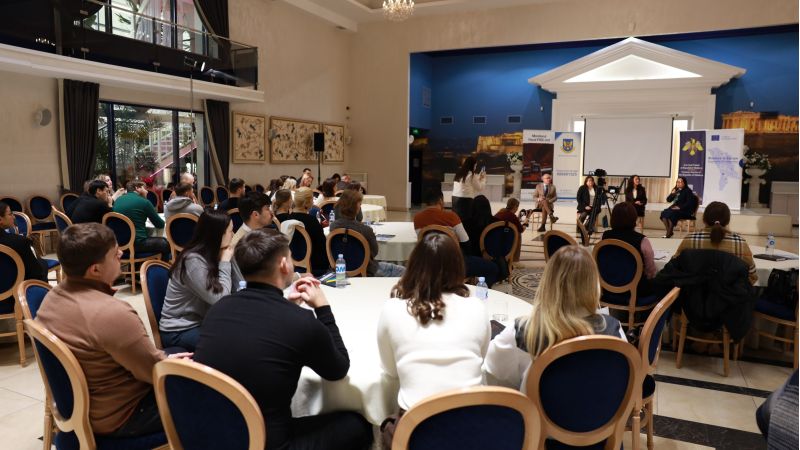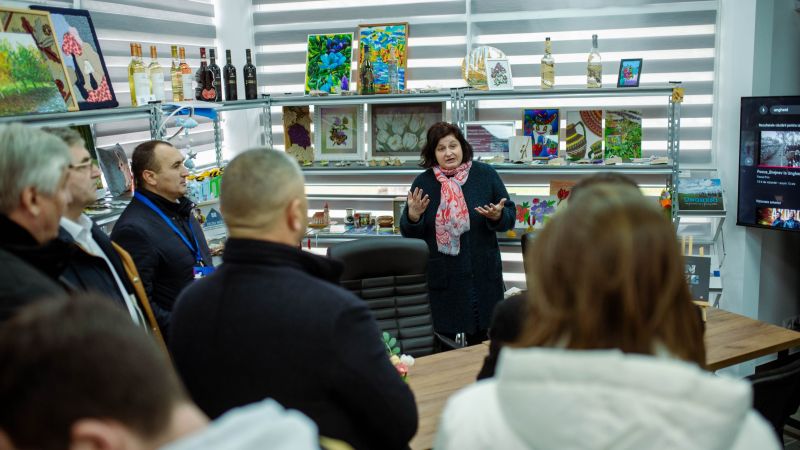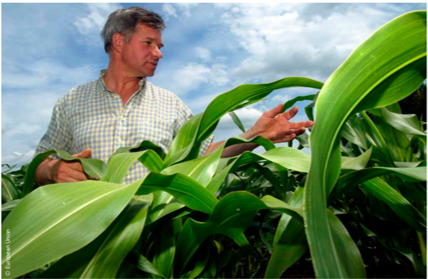
Sprijinul UE pentru agricultură, dezvoltare rurală și siguranță alimentară în Republica Moldova – rezultate de progres
În septembrie și octombrie 2021, Proiectul Twinning „Sprijin suplimentar pentru agricultură, dezvoltare rurală și siguranța alimentelor în Republica Moldova” a implementat 7 misiuni fizice, 1 la distanță și 2 misiuni hibride, cu participarea a 25 de experți pe termen scurt din SM: Austria, Polonia și Lituania. Astfel, într-o strânsă colaborare cu beneficiarii, care a fost facilitată de prezența fizică a experților la Chișinău posibilă din cauza unei situații de pandemie de COVID-19 stabilizată, s-au obținut o serie de rezultate tangibile.
Pentru a sprijini în continuare MAIA în dezvoltarea viitoarei Strategii naționale pentru agricultură și dezvoltare rurală (SNADR 2030), experții de twinning din Austria și Polonia au lucrat la revizuirea proiectului SNADR și a indicatorilor sectoriali. Scopul a fost să se asigure că ghidările și standardele UE sunt încorporate, precum și furnizarea de recomandări. În cele din urmă, discuțiile fructuoase au asigurat ajustările necesare în conformitate cu abordarea UE.
Alte două echipe de experți au actualizat în continuare sistemul de monitorizare și evaluare propus față de practica actuală de raportare și au continuat cu evaluarea ex-ante a SNADR 2030, partea 3. Măsurile existente, programele sectoriale pregătite și planificate, programul DR, LEADER etc. au fost analizate în ceea ce privește consistența și impactul potențial asupra agriculturii și dezvoltării rurale din Moldova. Informațiile, concluziile și recomandările adunate au fost sintetizate în rapoarte partajate cu beneficiarii.
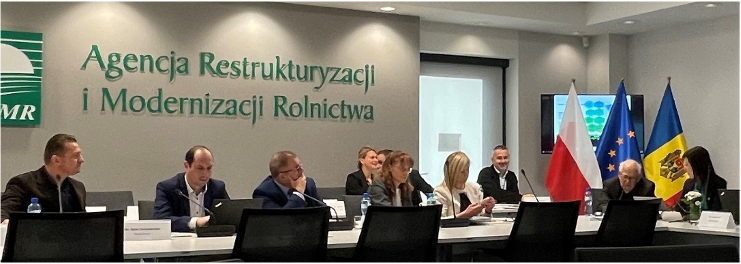
Împreună cu experții AIPA și Fondul de Solidaritate PL, a fost discutat despre sistemul LEADER din Moldova. Au fost identificate diferitele documente care trebuiau elaborate pentru implementarea programului LEADER (proceduri, manuale, formulare, șabloane etc.) și a început elaborarea lor.
Sistemul IACS „Sistemul Integrat De Administrare și Control” este o altă prioritate pentru proiect și pentru beneficiari. În această perioadă a avut loc ultima misiune în activitate pe tema „Foaia de parcurs privind implementarea IACS în Moldova”. A fost organizat un seminar la nivel înalt în cadrul căruia experții au prezentat punctele esențiale ale foii de parcurs elaborate către conducerea de vârf a AIPA și MAIA precum și reprezentanților Ministerului Finanțelor, Agenției Naționale a Serviciului Public, Delegației UE și potențialilor donatori. Cu succes, a fost crescută conștientizarea cu privire la necesitatea vitală de a dezvolta și menține un sistem IACS pe deplin funcțional. Acesta reprezintă un obiectiv strategie pe termen lung pentru Moldova.
Două echipe de experți din Polonia și Austria au efectuat primul audit de acreditare în AIPA conform Anexei I al Regulamentului 907/2014. Întrucât AIPA nu este o agenție de plăți a UE, ideea auditului a fost de a obține o evaluare obiectivă a situației actuale din instituție. A fost elaborat un raport de audit în care au fost sintetizate principalele constatări, au fost evidențiate punctele slabe și au fost furnizate recomandări.
La sfârșitul lunii octombrie, o echipă de experți de la AIPA a participat la o vizită de studiu în Polonia. Agenția Poloneză pentru Restructurare și Modernizare a Agriculturii (ARMA) și-a împărtășit cunoștințele și bunele practici în cadrul unui număr de ateliere și prezentări în domeniile auditului intern, dezvoltării de software, securității cibernetice, abordării LEADER, IACS etc. Experții AIPA au beneficiat de asemenea de observarea situației la fața locului în timpul unei excursii de o zi. Experții au avut ocazia să obțină informații de la beneficiarii subvențiilor oferite de ARMA și să afle mai multe despre feedback-ul lor cu privire la proceduri și experiențele lor. Aceste cunoștințe trebuie să fie integrate în activitățile generale ale AIPA și în dezvoltarea și implementarea ulterioară a programului LEADER. Experții gazdă au împărtășit detalii și șabloane experților din Republica Moldova și și-au subliniat disponibilitatea de a oferi linii directoare ori de câte ori este nevoie.
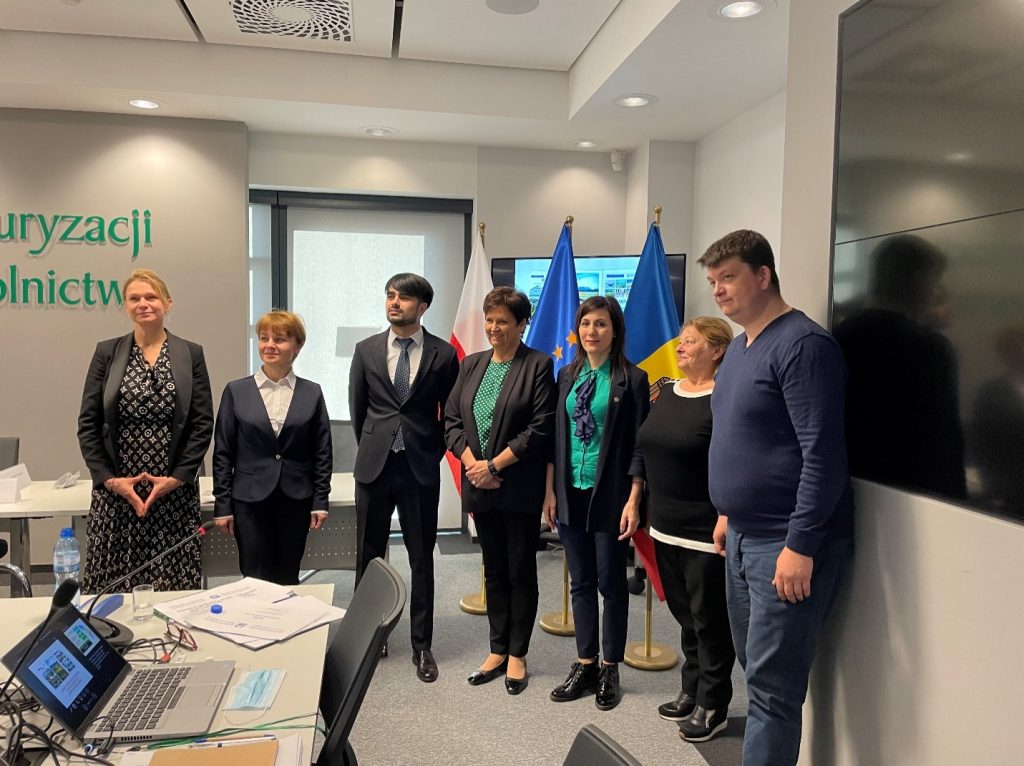
În perioada septembrie-octombrie 2021, proiectul Twinning a organizat o vizită de studiu a experților ANSA și Laboratorului CRDV în Republica Lituania. Vizita de studiu a cuprins întâlniri importante cu experții Serviciului Alimentar și Veterinar de Stat al Republicii Lituania, care și-au împărtășit experiența cu privire la controlul oficial al siguranței alimentare și al sistemului veterinar din Lituania. SFVS a furnizat, de asemenea, punctele cheie legate de problemele de export privind carnea și ouăle de pasăre. Prioritatea Republicii Moldova este deschiderea exportului de produse de origine animală în UE.
În cadrul vizitei de studiu, în pofida situației Covid, au fost organizate vizite la 4 unități cu diferite domenii de activitate (ferme de pui de carne, abator, produse avicole, pește, produse din ouă, unități de producere a produselor de panificație). Experții de la ANSA au fost interesați de Controlul Inspecției la Frontieră și au vizitat unul dintre cele mai mari puncte de Control la Frontieră. Experții ANSA au fost interesați, precum și de certificatele veterinare pentru produsele de origine animală care se eliberează pe teritoriul țării. În acest sens, ar dori să implementeze unele modificări și să simplifice procedura pentru operatorii din sectorul alimentar.
Vizitele efectuate de reprezentanții ANSA la Institutul Național de Evaluare a Riscurilor Alimentare și Veterinare din Lituania au acoperit domeniile de implementare și acreditare a metodelor efectuate pe LC/MS/MS pentru reziduuri în animale vii și produse de origine animală. Experții CRDV au dobândit experiență în metodele de detectare a reziduurilor de substanțe chimice, revizuirea criteriilor de validare/verificare a metodelor de screening și metode de confirmare, metode de calcul, planificare și raportare.
Vizita la ferma și abatorul de pui de carne a oferit ocazia de a vedea un exemplu de modul în care programele de monitorizare de autocontrol în domeniul sănătății animalelor și siguranței alimentelor sunt implementate pe baza cerințelor UE. Vizita la unitatea producătoare de ouă a ajutat să vedem un bun exemplu legat de modul în care sunt valorificate posibilitățile și modul de implementare viitoare a acestora în Republica Moldova. Experții ANSA au afirmat că vizita de studiu a fost una fructuoasă în ceea ce privește implementarea reglementărilor și standardelor UE puse în aplicare în Moldova.
Proiectul Twinning a organizat în luna octombrie o misiune de fortificare a capacităţilor Centrului Republican de Diagnostic Veterinar (CRDV) şi a trecut în revistă activităţile laboratorului de microbiologie – starea de acreditare, managementul calităţii, facilităţi şi condiţii de mediu, recepţia probelor, condiţiile de depozitare a probelor. Experții de la Institutul Național de Evaluare a Riscurilor Alimentare și Veterinare din Lituania și-au împărtășit experiențele privind metodele de detectare a microorganismelor patogene precum Salmonella, Campylobacter, Listeria monocytogenes în produsele de origine animală.
Un laborator bine echipat și aplicarea de către acesta a metodelor de validare este necesar și pentru testele de autocontrol prin eșantionare ale operatorilor din sectorul alimentar. ANSA și CRDV le-au mulțumit experților lituanieni pentru sprijinul acordat în realizarea conformităților solicitate și în implementarea standardelor Uniunii Europene.
Mai multe informații despre proiectul Twinning pe Facebook: https://www.facebook.com/organicisgood

